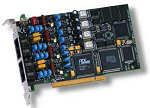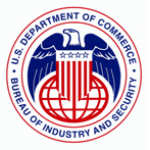 Three of the 167 counts charged against Armor Holdings which led to the recent $1,102,200 settlement agreement related to charges that Armor exported items in excess of licensed value in violation of EAR Section 764.2(a). For example, Armor exported plastic handcuffs valued at $1,980 under a license that authorized export of plastic handcuffs valued at $1,000. The Settlement Agreement doesn’t make clear why exporting merchandise in excess of authorized value under the license is a violation of the EAR, but it is, and it’s instructive to see why it is a violation.
Three of the 167 counts charged against Armor Holdings which led to the recent $1,102,200 settlement agreement related to charges that Armor exported items in excess of licensed value in violation of EAR Section 764.2(a). For example, Armor exported plastic handcuffs valued at $1,980 under a license that authorized export of plastic handcuffs valued at $1,000. The Settlement Agreement doesn’t make clear why exporting merchandise in excess of authorized value under the license is a violation of the EAR, but it is, and it’s instructive to see why it is a violation.
The specific violation charged with respect to the export of excess-value plastic handcuffs was Section 764.2(a) which says:
No person may engage in any conduct prohibited by or contrary to, or refrain from engaging in any conduct required by, the EAA, the EAR, or any order, license or authorization issued thereunder.
But where exactly in the EAR is there a prohibition on shipping items in excess of the value authorized in the license? That would be Section 750.7(c)(1)(ii) which lists the “non-material changes” in an export that do not require the issuance of a replacement license, including:
Increase in price or quantity if permitted under the shipping tolerances in §750.11 of this part.
Under Section 750.11, shipping tolerances depend upon the unit value specified in the relevant ECCN. If the unit reads “$ value,” there is no shipping tolerance. If the unit reads “Number” or “in Number,” then the value of all shipments under one license may exceed the authorized dollar value by up to 25 percent. If the unit refers to weight, area or some other similar measure, then that measure may be exceed by up to 10 percent and authorized value by up to 25 percent.
Plastic handcuffs are categorized under ECCN 0A982, which specifies the unit as “$ value.” That means that, under the zero tolerance policy, you can get whacked for shipping plastic handcuffs valued at $1000.01 under a license authorizing exports of $1,000. Is that a compliance nightmare or what?
Consider for example nylon hand restraints also categorized under ECCN 0A982 and subject to the zero tolerance policy. These restraints are valued as low as fifty cents, so a license authorizing $1,000 would authorize the export of 2,000 such restraints. How do you know you haven’t exported 2,001? How many times did your shipping department count the contents of the package being exported? Let’s even suppose that you are shipping ten 200-count packages that you purchased from a third party. How do you know that there are 200 in each package? How many export compliance officers reading this have just broken into a cold sweat?

 Posted by
Posted by  Category:
Category: 


 If you thought BIS could only come after you for exports of dual-use items, you would be wrong — a lesson learned the hard way by P.R.A. World Wide Trading Co., Inc., a freight forwarder which was fined $250,000 pursuant to a
If you thought BIS could only come after you for exports of dual-use items, you would be wrong — a lesson learned the hard way by P.R.A. World Wide Trading Co., Inc., a freight forwarder which was fined $250,000 pursuant to a  Another day, another foreign subsidiary of a U.S. company caught shipping stuff to Iran.
Another day, another foreign subsidiary of a U.S. company caught shipping stuff to Iran.  An
An 

